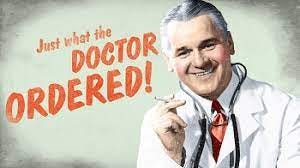IS IT FLUVOXAMINE’S TURN TO GET THE SILENT TREATMENT?
In October, 2021 the Lancet published the much awaited results of the fluvoxamine arm of its ongoing investigation into repurposed drugs to treat COVID-19. The results were positive showing a reduction in hospitalization and mortality in favour of the intervention arm. Since then, there has been little movement at the station when it comes to publicity for the well-established and generic anti-depressant.
Apart from a few articles in science journals, Nature and Science News, and in The Washington Post and Wall Street Journal in late 2021, there has been little in the MSM news since. Am I wrong in assuming that after two years of a pandemic that has caused such disruption and destruction to human life that anything that offered hope and sounded promising should be headline worthy? Seems I am.
There could be a few reasons for this. Maybe, people are just over the whole thing and have ‘covid fatigue’ – not the fatigue bought on by the virus itself, but fatigue when it comes to hearing about it. Or, perhaps, the lesson of ivermectin has made media gun shy when it comes to reporting positively on any early treatment intervention for covid-19? The term “early treatment” certainly seems to have become a controversial one in the last 12 months as posting anything on Facebook, for example, with the term could earn you a warning label on your post. The censorship over the last 12 – 18 months has extended to not just anyone that dares to question the efficacy of the vaccines, but anyone advocating for any other treatment as well. Ivermectin and hydroxychloroquine in particular resulting in various social media bans. It seems crazy, to me anyway, that after two years the direction from the department of health is still the same; stay home, isolate, call the hospital if you can’t breathe or walk. Even though the real-world evidence is now making it painfully obvious that what we were told about the vaccines’ efficacy was clearly inaccurate (that’s me being generous) it seems the health authorities, and their media lackies, are refusing to admit that they ever said that the vaccines would prevent covid (Hint. They did.) And are actively trying to rewrite history as I write this. (Question: Are they lying now, or were they lying then?)
I recently tested positive for covid. I took an RAT after I woke up with a sore throat on Monday morning. The test came back negative. When I woke up with fever and chills the next morning, after a particularly restless night, I knew something was afoot, so I took another test. This time it showed a positive result. It’s been four days since and my symptoms have improved dramatically after taking Panadol, vitamins C, D, quercetin, and zinc. (I also gargled twice a day with betadine solution.) I made an appointment with my GP as well and asked her if there were any medications she could recommend that I wasn’t already taking, she said no there was nothing else available. No mention of fluvoxamine, no mention of either of the new anti-viral pills that have recently received emergency use authorization by the Australian TGA (Therapeutic Goods Administration) either. Both ivermectin and hydroxychloroquine are banned in Australia so I did not even bother to ask about those. As Dr. Pierre Kory from the FLCCC has come to realise it’s not just about ivermectin, it’s a war on repurposed medication in general, and anything that may deter the public from getting on board the vaccine express it seems.
Maybe, in another year from now we will look back on the bad press early treatment has endured during this pandemic with the same incredulity that we reserve for doctors who used to promote smoking. Until then, best to do your own research.



